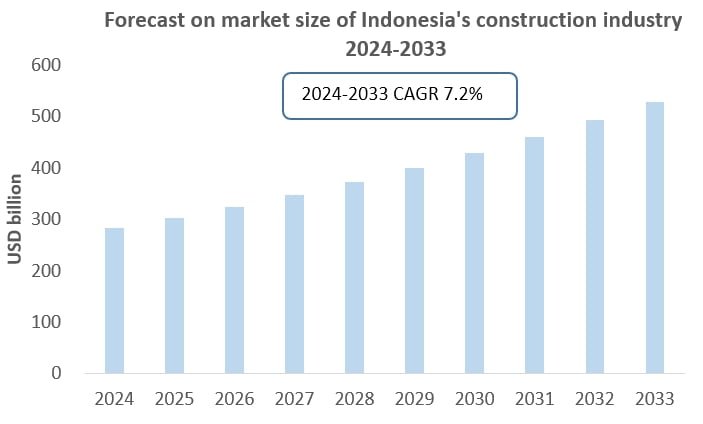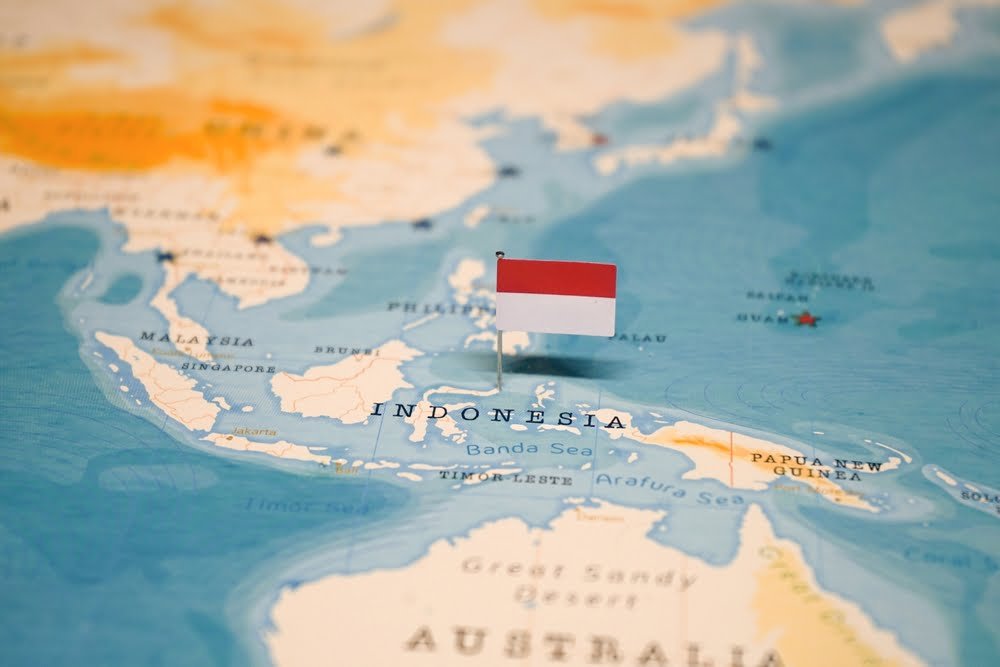Indonesia is the 4th most populous country in the world. The construction industry in Indonesia is expected to grow significantly in 2024, with a market size projected to reach about USD 284.17 billion. This growth is driven by key trends in technology, sustainability, and government policies.
Below, we will talk about the major developments shaping Indonesia Construction Market Trends 2024.
Technology Adoption in Construction
Technology is playing a big role in transforming Indonesia’s construction industry. Companies are using advanced tools to work faster and more efficiently. One popular technology is Building Information Modeling (BIM), which helps architects and engineers create detailed digital models of buildings. This reduces mistakes and improves planning during construction.
Drones are also becoming more common on construction sites. They are used for aerial surveys, tracking project progress, and checking safety. Drones provide real-time data, helping managers make quick decisions.
The Internet of Things (IoT) is another technology making an impact. IoT devices monitor equipment and worker safety, improving the overall management of construction sites. These technologies not only speed up work but also make sites safer and more organized.
Sustainability Initiatives
Sustainability is a major focus in Indonesia’s construction market for 2024. The government is pushing for green building practices to address environmental issues and reduce carbon emissions. This includes encouraging the use of renewable materials and designing energy-efficient buildings.
The government aims to increase the use of renewable energy from 12% to 40% by 2030, which means a lot of investment in sustainable infrastructure. This goal creates opportunities for construction companies that specialize in green technologies.
New regulations also support sustainable construction by promoting eco-friendly designs and materials. These regulations not only help the environment but also attract investors who prefer green projects.
Government Policies Driving Growth
The Indonesian government’s policies are a major force behind the construction boom. In 2024, the government plans to spend over IDR 423 trillion (about USD 28 billion) on infrastructure. This investment will improve roads, bridges, and public transportation, making it easier for people to move around the country.

A big part of this spending is the development of Indonesia’s new capital city, Nusantara, on Borneo island. This project aims to ease overcrowding in Jakarta and create a modern city for future growth, driving massive construction activity.
The government is also focusing on affordable housing to meet the needs of the growing urban population. These initiatives provide more opportunities for construction companies to work on large projects and help address the housing shortage.
Challenges for Indonesia’s Construction Industry
While the outlook is positive, Indonesia’s construction industry faces some challenges. High costs of materials and labor remain a problem, and political or economic uncertainties can delay projects. Companies need to be adaptable and prepared to manage these risks as they navigate the changing market.
In conclusion, the Indonesia Construction Market Trends 2024 shows an industry full of potential. Technology is boosting efficiency, sustainability is shaping eco-friendly practices, and government investments are driving growth in infrastructure and housing.
To succeed, construction companies in Indonesia must stay flexible and innovative. Adopting new technologies and aligning themselves with government goals can help these companies to thrive and contribute to the country’s development. The future looks bright for Indonesia’s construction sector, and companies that embrace these changes will be well-positioned for success.

